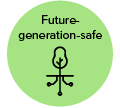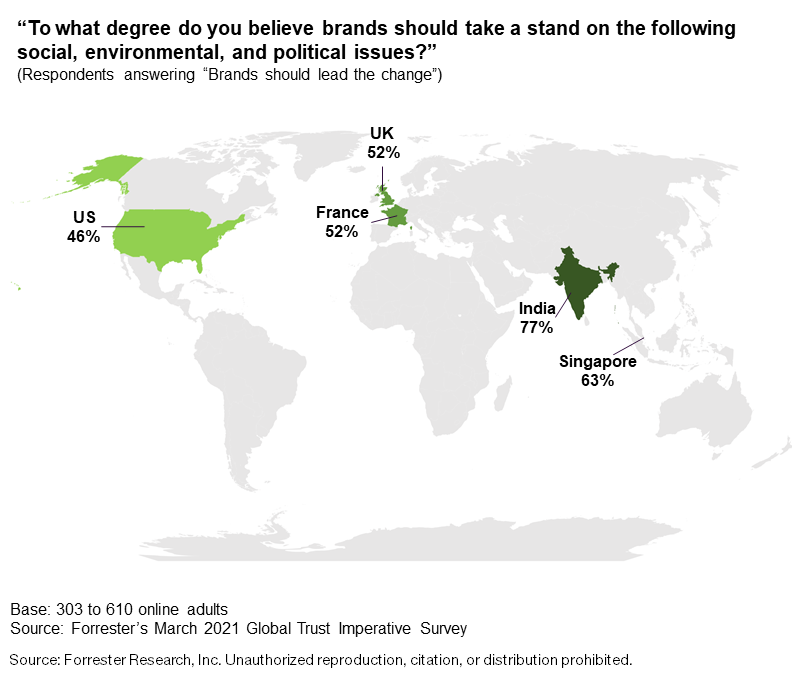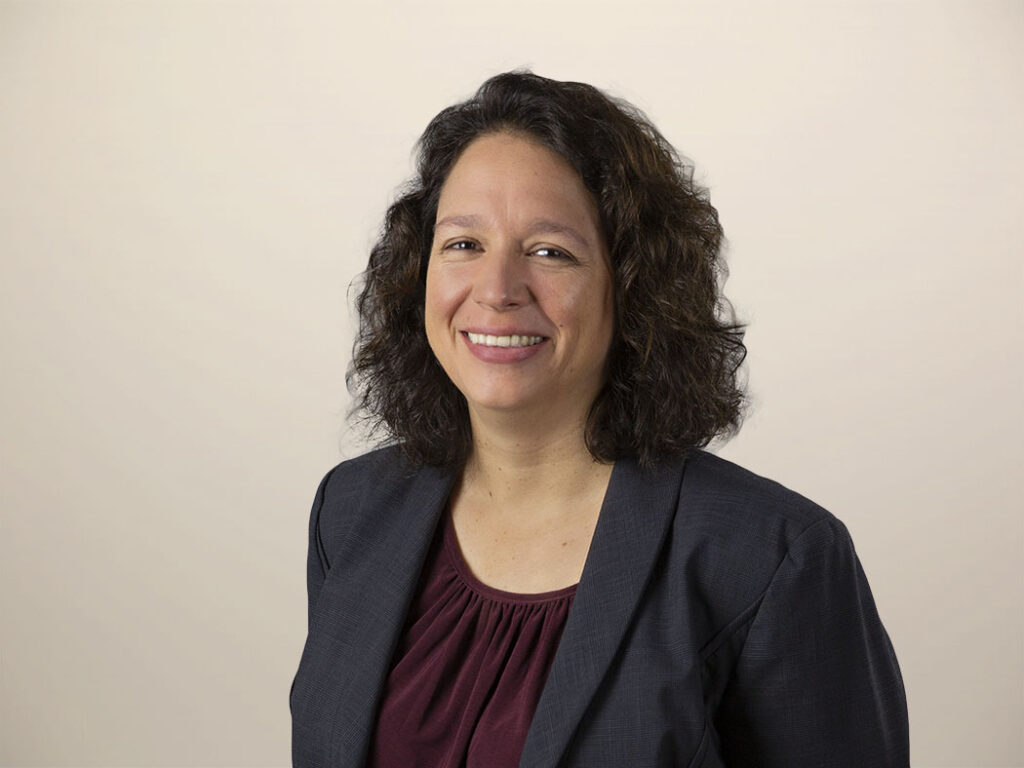Every Firm Must Move To Be Future-Generation-Safe

COP26 begins this Sunday, and with it, the world will set sustainability on the global agenda. Forrester has long promoted sustainability practices and believes that every firm must move to be future-generation-safe, because these practices:
- Build trust. A new pattern of trust is emerging as a business imperative, especially for firms maturing their sustainability journey. Customers will only trust brands that follow through on their promises, and they can be demanding. In fact, customers believe that brands should lead the change when it comes to social, environment, and political issues across the globe (see the below figure).

- Increase resilience. To be resilient, firms must be able to deliver on their vision and brand promise, no matter the crisis. Sustainability practices help boost resilience by mitigating risks, helping firms shore up financial resources, and streamlining operations.
- Open new markets. Firms that are embedding circular economy principles at the heart of their business models are gaining traction among consumers because they manage to maximize the lifetime value of products and solutions, recycle waste, and minimize energy consumption.
In preparation for COP26 and to help firms worldwide adopt sustainability practices, Forrester will release supporting blogs and reports. The new reports include:
- Guide Your Sustainability Program With The Forrester Sustainability Maturity Model. The journey to becoming a future-generation-safe firm, and the benefits that it garners, requires not only public commitment but a well-executed roadmap to avoid loss of trust with stakeholders, customers, and employees. This report outlines the five maturity levels of sustainability that firms must progress through, the benefits and investments of each, and the organizational commitments that each level requires.
- The Future Of Business Is Sustainability. This report helps leaders understand the key drivers of sustainability transformation and shares best practices to build trust among consumers, employees, suppliers, shareholders, and communities to develop sustainability as the new competitive advantage.
- The Forrester Corporate Climate Change Disclosure Template. This template aids firms that are starting their sustainability reporting, specifically for the most recent CDP (formerly known as the Carbon Disclosure Project) climate change questionnaire, with a systematic approach, a comprehensive view of required data, and the groundwork for future automation.
- The Four Types Of Chief Sustainability Officers. Looking for a job in sustainability, including the top job? This report describes the common CSO characteristics and defines four types of CSOs to help potential applicants identify where their strengths match company needs and thereby attain the perfect CSO-company fit.
Use these reports to understand where your firm is on the sustainability maturity journey and bolster your firm’s sustainability practices. Looking for more? Get reports and other complementary resources here.
This blog post is part of Forrester’s COP26 series. For more Forrester insights on sustainability, see the full set of Forrester’s climate action blogs.
